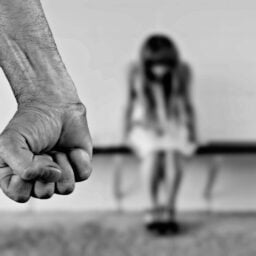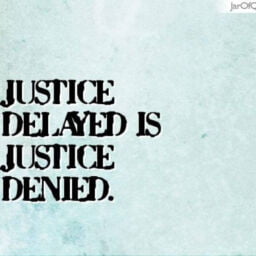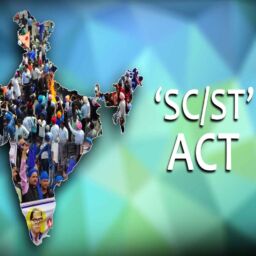INTRODUCTION
An accused person possesses some specific rights. As a human being, he doesn’t deserve any inhuman attitude while staying in custody. The Universal Declaration of Human Rights and The Constitution of Bangladesh marked several rights regarding the accused persons. Every person has a right to get a free and impartial trial process. If any trial is made without following the principles of the ‘Rule of Law’ and ‘Natural Justice,’ it cannot be said to be fair. Unfortunately, frequent infringement of these rights of the accused is seen in Bangladesh. It is a severe matter of concern for every citizen of this country.
Constitutional Safeguards towards an Accused Person
The Constitution of Bangladesh has ensured several rights for the benefit of an accused person. Article 31, 32, 33, and 35 of the Constitution specifies some provisions regarding this matter. Those rights can be mentioned as:
1. Protection of Life and Liberty
Article 31 and 32 of the Constitution of Bangladesh ensured the right to protection of life and personal liberty as a fundamental right.[1] No person shall be deprived of this right without following adequate legal procedure. So, an accused person must not be treated brutally after arrest. He possesses the fundamental right of securing the protection of the law. No law enforcing agency has the right to treat him following their will, violating the legal provisions. In the Bangladesh Society for the Enforcement of Human Rights and Others v. Government of Bangladesh and Others[2], the Court upheld the right to protection of the law for prostitutes as citizens of Bangladesh. Again in Faustina Pereira v. State and others[3], the court declared keeping a prisoner in jail after completing his punishment violated a fundamental right.
2. Protection from Arrest and Detention
Article 33 of the Constitution states the right for an arrested person to know the reason for his detention.[4] He must be produced before the magistrate within 24 hours, excluding the journey time. But in the case of preventive detention, police may not disclose the reason on the ground of public policy. According to section 54 and 167 of CrPC, 1898, police has no right to arrest anyone without any reasonable suspicion.[5] The definition of ‘reasonable suspicion’ has been stated in Saifuzzaman (Md) v. State and Others[6]. If a police officer violates this law, he will be punished under section 220 of CrPC, even if he had done it bona fide[7].
3. Right against Self-Incrimination
Article 35(4) establishes the right of an accused against self-incrimination. No one can compel any arrested person to act as a witness against himself.[8]
- Protection against Inhuman Treatment in the Custody
No person shall be subject to inhuman or brutal punishment according to Article 35(5) of the Constitution. However, this right confers some legal restrictions. The police shall not brutally torture the accused person to make him confess the truth. The confession of a person will only be granted if it is recorded before a magistrate under section 164 of the CrPC. In the State v. Mobile Kader[9] case, the Court stated that a confession could be treated as conclusive proof only when it is true and voluntary. So, torturing an accused person with a view of revealing the truth is undesirable.
5. Right to Defence and Getting Legal Assistance
Every accused person has the right to defend themselves. This right follows the Principle of the Natural Justice – Audi Alterum Partem. That means no one shall be condemned unheard. Article 33(1) of the Constitution gives an accused person the right to consult with a legal practitioner to defend himself. A remarkable case in this matter is Moslemuddin Sikder v. Chief Secretary[10].
6. Right to Fair and Speedy Trial
Article 35(3) ensures the right to get a fair, impartial, and speedy trial of an accused.[11] Section 352 of the CrPC also contains this right. A fair trial refers to a trial done by an impartial court or tribunal. It must be a neutral and independent one. The court or tribunal must be determined to ensure justice.
7. Protection Against Double Jeopardy
Double jeopardy means a person shall not be prosecuted and punished for the same reason as more than one. This right is secured under Article 35(2) of the Constitution. Abul Jabbar v. Bangladesh[12] is a leading case regarding this matter. Here, the convicted would be punished twice for the same offence. But the Court declared that proceeding as void. This right is also enforced under section 403 of the CrPC[13].
The Rights Protected under Other Laws
Besides the Constitution of Bangladesh, the rights of an accused person are also enumerated in several more Acts. The provisions of CrPC, 1898, have been mentioned earlier. In The Prisons Act 1984, some rights for the prisoners have been stated. Those are[14]–
- Medical examination of the accused (section 24);
- Special provisions for the women prisoners (section 27);
- Special requirements for solitary confinement (section 29);
- Right to receive food, clothes, etc. from family, friends, and the prison for a non-convicted prisoner (section 31, 32);
- Special care provisions for the sick prisoners (section 37-39);
- Right of the accused person to meet lawyers (section 40)
Moreover, the Torture and Custodial Death (Prevention) Act, 2013 contains provisions regarding the prevention of brutality against convicted and non-convicted prisoners[15]. The Children Act, 2013 also states the provisions regarding the accused children. It ensures that no accused child should be ill-treated. These children should be kept separate from the adult offenders in the Child Development Center.[16]
Violation of the Rights of the accused
Though there are enough provisions available to protect the rights of an accused person, these rights have been violated frequently. There are a lot of instances of crossfire or extrajudicial killing of the accused. Here are some situations when these rights are ignored:
- Preventive Detention
Article 33 of the Constitution leaves provisions for arresting a person under the suspicion of committing a future crime. In this case, the accused person might not know the reason for his arrest. Besides, if the Advisory Board admits, he can be detained for an uncertain period in custody. It violates the rights of an accused. Again, section 3 of the Special Powers Act, 1974 gives the Government a vast power to direct the law enforcing agencies to detain any person. If the Government thinks that a person is likely to commit any prejudicial act defined under section 2(f), it can use this power[17]. It is a significant violation of the right to liberty of a person.
- Crossfire
Crossfire is a synonym of the ‘death in an encounter’ used by the law enforcing agencies of our country.[18] It is a form of extrajudicial killing that excessively violates the rights of an accused. Here, the accused do not get any chance to defend himself. So, the action infringes the principles of natural justice too. The annual report of Odhikar shows that, during 2020-2021(September), 35 people were killed on a crossfire[19]. This report shows an undesirable situation in Bangladesh.
- Death in Custody
Custodial death is another alarming situation for our legal system. According to the report of Ain O Salis Kendra, about 33 prisoners were victims of extrajudicial killing in custody during 2020-2021[20]. The recent Reja Killing case (2021) revealed the brutality of the police officer towards an accused[21]. In 2014, another victim of custodial death after the cruel torture of police was Ishtiyaq Hossain Jonny.[22] In the Rubel Killing case (1998)[23], HCD declared 15 guidelines to be followed towards an accused person. However, these guidelines have not yet been passed by the parliament. Besides these three, the rights of an accused person have not been followed in most cases. But this matter is not adequately checked by the law enforcement agencies and other concerned parties.
Final Thoughts: CONCLUDING REMARKS
An accused person can enjoy several rights under the Constitution and other laws of the land. But, the main issue is ensuring the proper implementation of these rights. The frequent violation of these fundamental rights should be checked more strictly. Exemplary punishment should be given to the guilty police officer so that no one can commit this heinous crime again. If law enforcers, judicial officers, NGOs, governmental organizations, and all citizens of Bangladesh increase their awareness of this matter, we can hope to overcome this situation.
Author(s) Name: Faiqua Tahjiba (University of Rajshahi, Bangladesh)
References:
[1] The Constitution of Bangladesh 1972, Art 31, 32.
[2] Bangladesh Society for the Enforcement of Human Rights and Others v. Government of Bangladesh and Others, (2001) 53 DLR 1.
[3] Faustina Pereira v. State and Others, (2001) 53 DLR 414.
[4] The Constitution of Bangladesh 1972, Art 33.
[5] The Code of Criminal Procedure 1898, S 54, 167.
[6] Saifuzzaman (Md) v. State and Others, (2004) 56 DLR 324.
[7] Alhaj Md. Yusuf Ali v. The State, (2002) 22 BLD 231.
[8] The Constitution of Bangladesh 1972, Art 35(4).
[9] State v. Mobile Kader, 67 DLR AD 6.
[10] Moslemuddin Sikder v. Chief Secretary, (1956) 8 DLR 526.
[11] The Constitution of Bangladesh 1972, Art 35(3).
[12] Abul Jabbar v. Bangladesh, (1981) 33 DLR 230.
[13] The Code of Criminal Procedure 1898, s 403.
[14] The Prisons Act, 1894.
[15] Torture and Custodial Death (Prevention) Act, 2013.
[16] Children Act, 2013.
[17] The Special Powers Act 1974, s 3, 2(f).
[18] Md. Awal Hossain Mollah, ‘Crossfire and Violation of Human Rights in Bangladesh: A Critical Review’ (2019), International Journal of Law Crime and Justice <https://www.researchgate.net/publication/337442176_Crossfire_and_Violation_of_Human_Rights_in_Bangladesh_A_Critical_Review> Accessed on 20 January 2022.
[19] The Annual Report 2021, Odhikar <http://odhikar.org/wp-content/uploads/2021/11/Total-KLEA-2001-2021.pdf>
[20] ‘30 extrajudicial killings reported till June’, DhakaTribune, ( Dhaka, 26 June 2021) <https://archive.dhakatribune.com/bangladesh/2021/06/26/30-extrajudicial-killings-reported-till-june> Accessed on 20 January 2022.
[21] ‘How did Reja die while in police custody?’, The Daily Star, ( Dhaka, 5 January 2021)<https://www.thedailystar.net/editorial/news/how-did-reja-die-while-police-custody-2022713> Accessed on 20 January 2022.
[22] Ibid.
[23] Blast and Others v Bangladesh and Others, Writ Petition number 3806 of 1998.
















